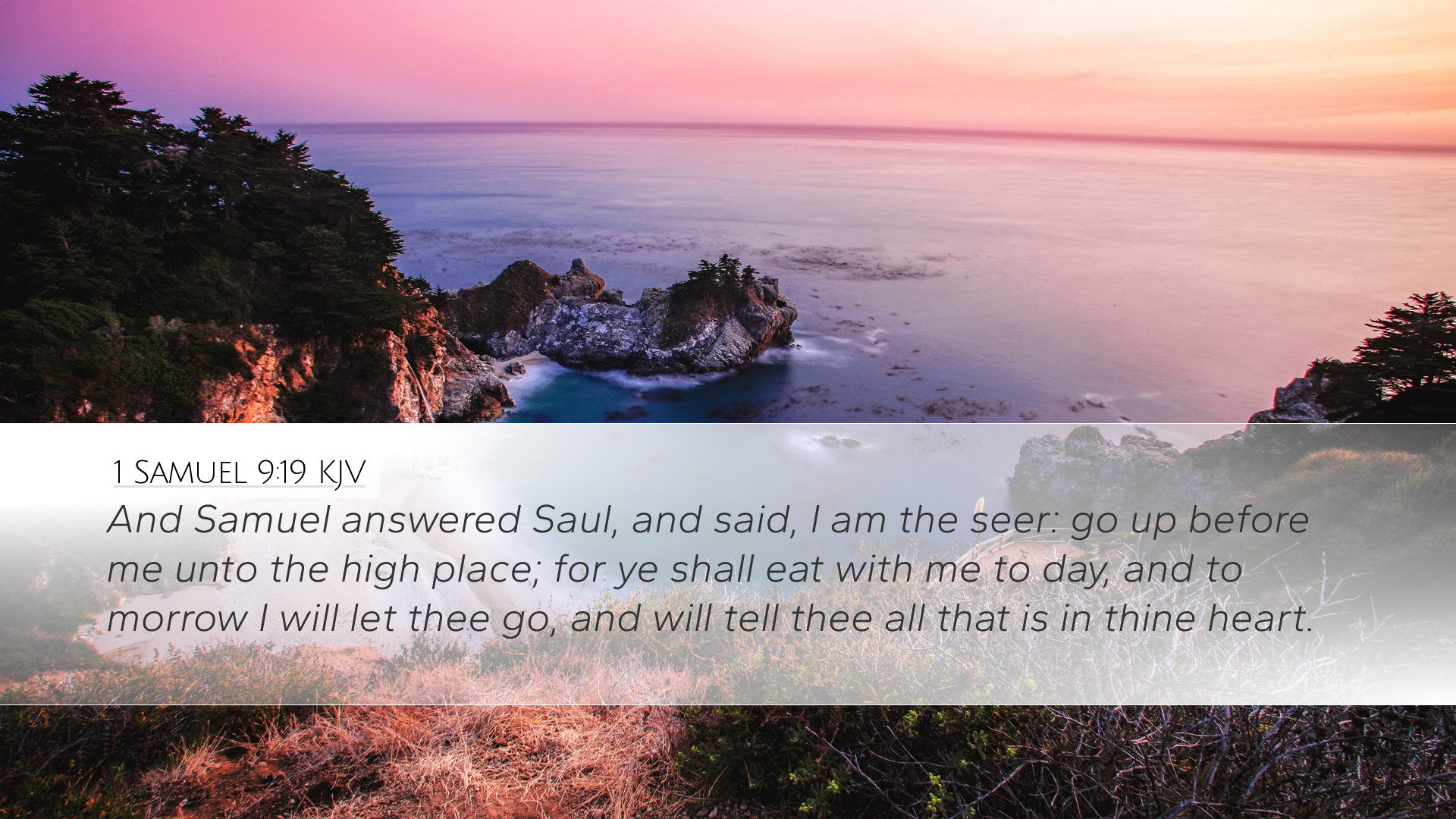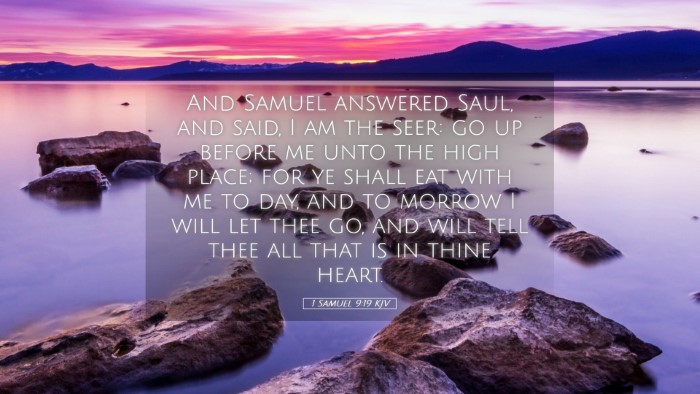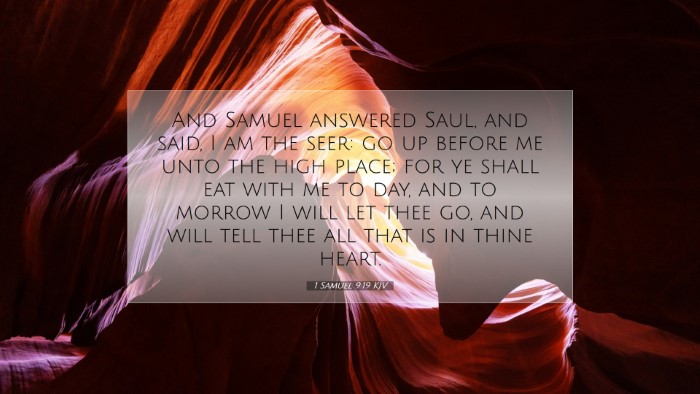Commentary on 1 Samuel 9:19
1 Samuel 9:19 states: "And Samuel answered Saul, and said, I am the seer: go up before me unto the high place; for you shall eat with me today, and in the morning I will let you go, and will tell you all that is in your heart."
Introduction
This verse introduces a key moment in the life of Saul, where he encounters the prophet Samuel, a significant figure in Israel's history. The context is rich with implications for understanding God's providence, the role of prophecy, and the principles of divine guidance.
Contextual Frame
The events in 1 Samuel 9 unfold within a period of Israel's transition from tribal confederacy to monarchy. Samuel, as the last judge and a prophet, is pivotal in this transformational phase. The occasion of Saul's meeting with Samuel highlights both the divine orchestration and Samuel's prophetic authority.
Exegesis and Analysis
Samuel’s declaration, "I am the seer," establishes his prophetic identity. In biblical literature, a seer not only foretells future events but also interprets God's will. This assertion invites reflection on the nature of prophetic ministry and its significance within the covenant community.
1. The Role of the Seer
Samuel’s role as a seer shapes the interaction with Saul. This encounter emphasizes several elements:
- Divine Revelation: Samuel acts as a medium through which God communicates to His people. The phrase suggests that God has revealed matters to Samuel that concern Saul, reinforcing the belief in divine oversight.
- Authority and Respect: Saul, a young man from a humble background, shows deference to Samuel’s authority. This teaches the importance of respecting spiritual authority and guidance in one's pursuits.
2. The Invitation to the High Place
Samuel’s command for Saul to "go up before me unto the high place" is laden with significance:
- Worship and Communion: High places were often associated with worship practices. Samuel’s invitation suggests a moment of spiritual communion, pointing towards the community’s need for divine guidance.
- Preparation for Calling: The high place signifies a transition; Saul is being prepared for his significant role. This reflects the biblical theme of preparation preceding important tasks ordained by God.
3. Provision and Prophecy
Samuel’s offer for Saul to "eat with me today" gives insight into the personal dimension of prophetic ministry. The shared meal symbolizes acceptance and the forging of a bond that will be crucial in Saul's forthcoming anointing as king.
Meaning of Eating Together
The act of dining together in biblical culture often indicates a covenantal relationship and acceptance. In this context:
- Social Bonds: It creates a formality of fellowship. It is an acknowledgment of Saul’s importance in the imminent divine plan.
- Intimacy of Prophecy: The prophetic message is not just a declaration of future events but is wrapped in personal relationship and connectivity.
4. The Promise of Revelation
Samuel promises to tell Saul "all that is in your heart," indicating that God is intimately aware of Saul's concerns and desires. This assurance is pivotal for understanding God’s personal involvement in the lives of individuals:
- God’s Omniscience: This reveals God’s nature as one who knows the heart, similar to themes elsewhere in scripture (e.g., Psalm 139).
- Intimacy with God: Believers are invited to bring their worries and desires before God, trusting that He knows and cares.
Theological Reflections
1. Divine Sovereignty in Leadership
This text illustrates that God, in His sovereignty, chooses leaders in accordance with His plans. Saul’s elevation to king is not merely a human decision but an act orchestrated by God.
2. Human Responsibility and Divine Guidance
While God is sovereign, Saul must engage with the process. His journey to meet Samuel symbolizes the need for human initiative in seeking divine counsel.
Conclusion
1 Samuel 9:19 serves as a profound illustration of God's providential care and the serious, thoughtful manner in which the divine chooses to interact with humanity. For pastors, students, theologians, and Bible scholars, this passage invites deep reflection on the nature of divine guidance, the critical role of prophetic ministry, and the responsibilities that accompany divine calling. It poses fundamental questions about our openness to divine revelation and our readiness to respond to God's call in our lives.


